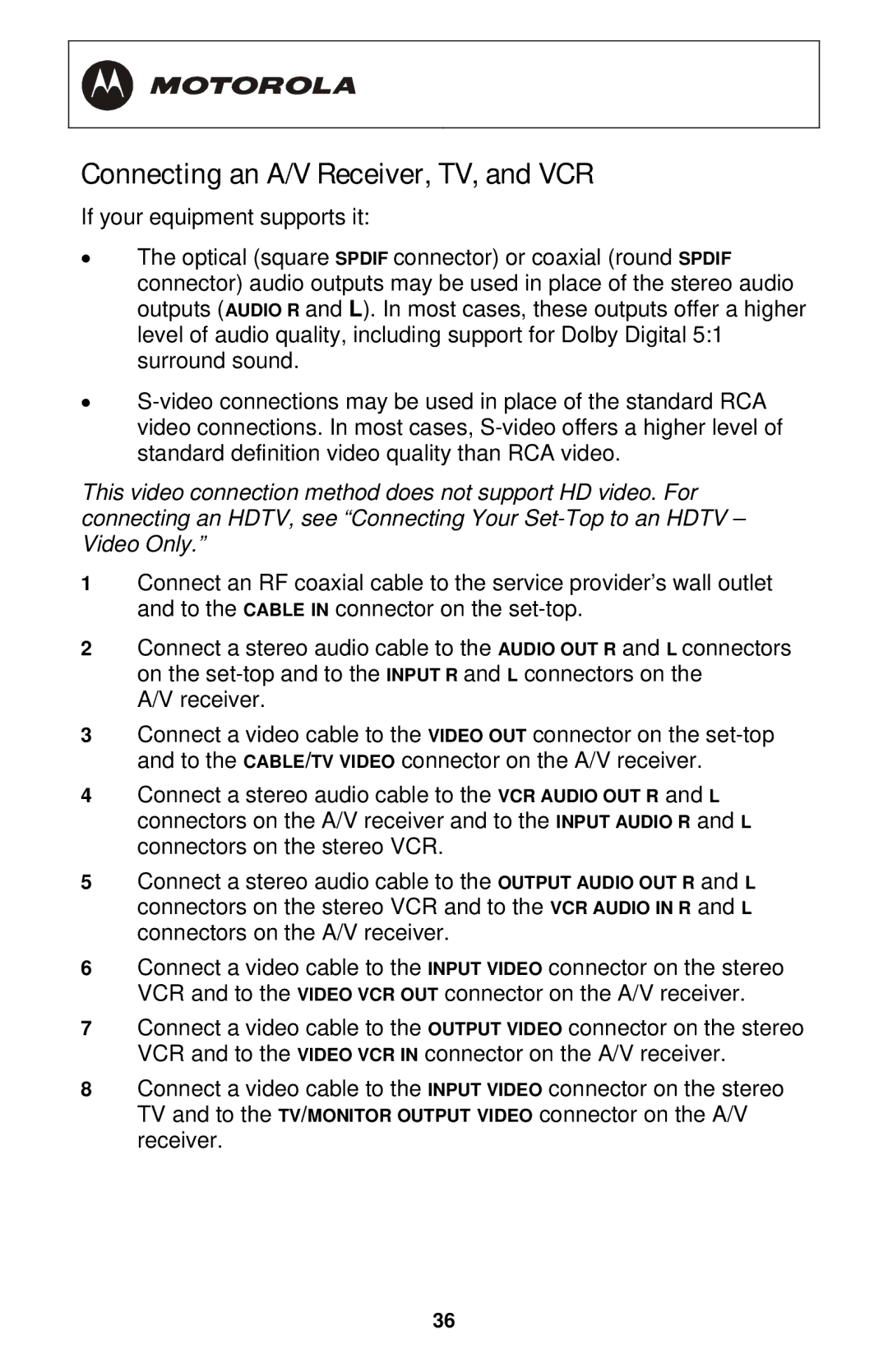
Connecting an A/V Receiver, TV, and VCR
If your equipment supports it:
•The optical (square SPDIF connector) or coaxial (round SPDIF connector) audio outputs may be used in place of the stereo audio outputs (AUDIO R and L). In most cases, these outputs offer a higher level of audio quality, including support for Dolby Digital 5:1 surround sound.
•
This video connection method does not support HD video. For connecting an HDTV, see “Connecting Your
1Connect an RF coaxial cable to the service provider’s wall outlet and to the CABLE IN connector on the
2Connect a stereo audio cable to the AUDIO OUT R and L connectors on the
A/V receiver.
3Connect a video cable to the VIDEO OUT connector on the
4Connect a stereo audio cable to the VCR AUDIO OUT R and L connectors on the A/V receiver and to the INPUT AUDIO R and L connectors on the stereo VCR.
5Connect a stereo audio cable to the OUTPUT AUDIO OUT R and L connectors on the stereo VCR and to the VCR AUDIO IN R and L connectors on the A/V receiver.
6Connect a video cable to the INPUT VIDEO connector on the stereo VCR and to the VIDEO VCR OUT connector on the A/V receiver.
7Connect a video cable to the OUTPUT VIDEO connector on the stereo VCR and to the VIDEO VCR IN connector on the A/V receiver.
8Connect a video cable to the INPUT VIDEO connector on the stereo TV and to the TV/MONITOR OUTPUT VIDEO connector on the A/V receiver.
36
